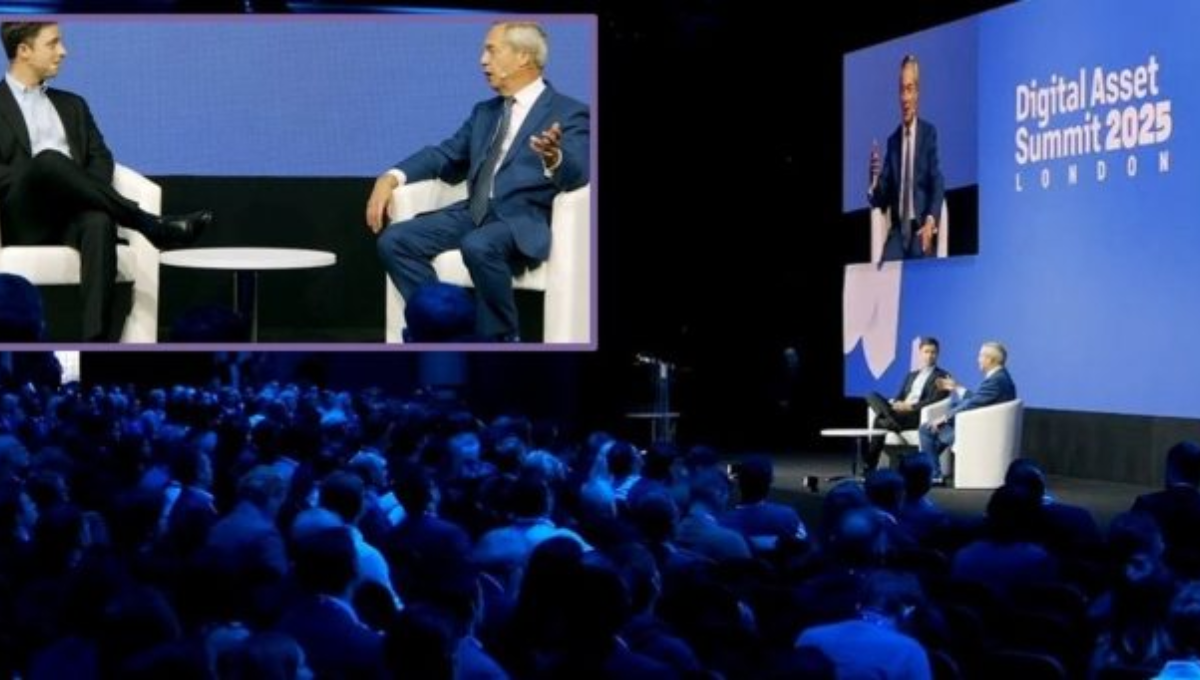Nigel Farage, the leader of Reform UK and a prominent figure in British politics, has recently made headlines with his bold promises to revolutionize the UK’s approach to cryptocurrencies and digital finance. During the Digital Asset Summit 2025 in London, Farage took a firm stance on bringing cryptocurrency into mainstream financial discourse and explicitly called for halting work on the development of the potential UK central bank digital currency (CBDC), often referred to as the digital pound.
Farage’s Vision for Cryptocurrency in the UK
In a fireside chat on October 13-15, 2025, Farage declared his intention to ‘bring crypto in from the cold,’ underscoring his support for the growth and acceptance of digital assets within the UK economy. He framed his stance as a pivotal shift toward embracing innovation rather than restricting it, criticizing existing regulatory approaches as overly cautious or prohibitive. Farage emphasized that his party, Reform UK, has laid out a comprehensive plan titled the ‘Cryptoassets and Digital Finance Bill,’ which aims to establish the UK as a global hub for blockchain and cryptocurrency innovation.
Farage’s advocacy is rooted in the belief that cryptocurrencies represent a significant economic opportunity. He discussed proposals such as setting a flat 10% capital gains tax on crypto profits, contrasting sharply with the complex and activity-dependent taxation currently in place. By simplifying the tax framework, Farage argued the UK could attract more investments and entrepreneurship in the sector.
Halt on the Digital Pound Development
One of the most notable announcements from Farage concerns his staunch opposition to the work on the digital pound. The Bank of England has been exploring the development of a central bank digital currency for the UK, a move aimed at maintaining the country’s competitiveness in the evolving global financial landscape. However, Farage criticized this initiative, describing it as an overreach of government authority that could threaten individual privacy and financial freedom.
He categorized the CBDC plans as an ‘intrusive’ government overreach and called for an immediate suspension of the work, advocating instead for private-sector-led innovations in digital currency. Farage has also questioned the transparency and oversight of such a project, warning that it could lead to increased government control over citizens’ finances.
Political and Public Reactions
Farage’s stance on crypto has received mixed reactions across the political spectrum. Supporters see him as a proponent of financial liberalization and innovation, aligning with his broader platform of deregulation and free enterprise. Critics, however, argue that his proposals could undermine regulatory safeguards designed to protect consumers and prevent financial crimes.
The UK’s financial regulators and the Bank of England have expressed cautious optimism about the potential benefits of CBDC technology but remain committed to rigorous testing and oversight. Farage’s call to halt these developments has sparked debates about the trade-offs between innovation, privacy, and security.
Farage’s Broader Strategy and Future Outlook
Farage’s vocal support for cryptocurrencies and opposition to the CBDC project signals a strategic effort to position Reform UK as a champion of technological independence and financial sovereignty. His speeches and proposals mirror populist rhetoric, emphasizing individual rights and criticizing what he perceives as unnecessary regulation.
He also announced plans for Reform UK to become the first political party in the UK to accept donations in Bitcoin and other cryptocurrencies, aiming to attract a new voter base sympathetic to digital assets. During a speech at the Bitcoin 2025 Conference in Las Vegas, Farage underscored his commitment, stating: “When it comes to your industry, when it comes to growth in this industry, then I am your champion”.
Overall, Farage’s pledges reflect a clear shift in his political messaging—favoring deregulation and proactive support for blockchain innovation—possibly reshaping the UK’s approach to digital finance in the coming years.
Nigel Farage’s recent speech and legislative proposals mark a decisive move toward integrating cryptocurrencies into the UK’s financial landscape while opposing the development of the digital pound. By advocating for deregulation, tax simplification, and private-sector-led digital currency initiatives, Farage aims to position the UK as a global leader in blockchain innovation. His stance has generated significant media attention and public debate, signaling a potential paradigm shift in the country’s approach to digital finance and monetary policy.


